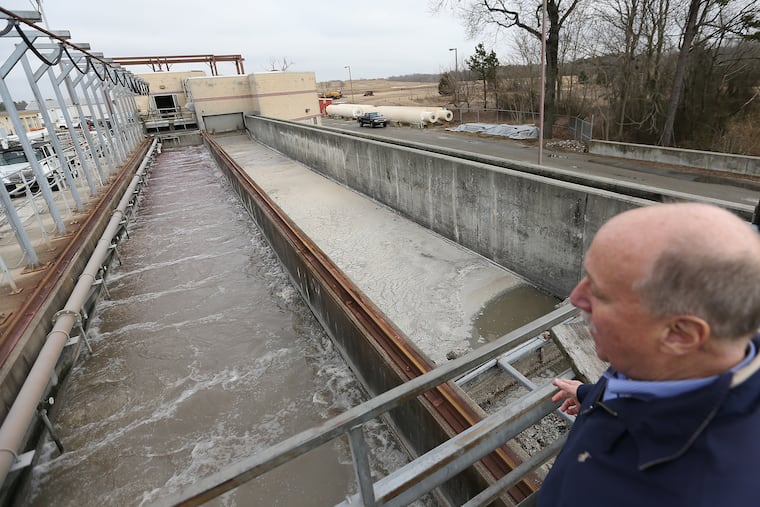Pa. will get $240M, and N.J. $169M, for clean water issues under bipartisan infrastructure bill
A federal bipartisan bill signed into law last month by President Biden means the two states will receive hundreds of millions to improve drinking water.

The federal EPA has announced that Pennsylvania will receive $240 million and New Jersey will get almost $169 million to improve water infrastructure, tackling lingering issues such as environmental justice and contamination from “forever chemicals.”
The money comes from the historic $1 trillion bipartisan bill signed by President Joe Biden last month.
EPA administrator Michael Regan sent a letter to governors urging them to target resources to disadvantaged communities, make rapid progress on “lead-free water for all,” and address PFAS contamination — a major issue in both states.
PFAS, perfluoroalkyl and polyfluoroalkyl substances, are a family of chemical compounds called “forever chemicals” because of their resistance to breaking down in humans or the environment. The compounds resist water, heat, and oil and have been used to produce cookware, carpets, clothing, furniture, fabrics, and firefighting foam. They have been associated with various health issues in the liver, endocrine system, and other bodily functions.
» READ MORE: Pennsylvania DEP proposes strict limits for ‘forever chemicals’ in drinking water
“With President Biden’s leadership and congressional action, the Bipartisan Infrastructure Law has created a historic opportunity to correct longstanding environmental and economic injustices across America,” Regan said Thursday in the announcement. “Billions of dollars are about to start flowing to states and it is critical ... these investments are delivered in the most equitable way.”
The infrastructure bill does not cite specific projects it will fund. Rather, it authorizes blocks of money to be used for certain types of projects over a number of years. The money is given to states through a formula. Governors and state agencies decide which projects to prioritize.
Overall, the infrastructure bill calls for a $50 billion investment nationally in water and wastewater infrastructure, the largest amount the federal government has made available for water, according to the letter Regan sent to governors. Within that, the bill calls for $15 billion to replace lead pipes, and $10 billion for PFAS contamination.
“The law’s investment in water is nothing short of transformational,” Regan wrote. “It includes $50 billion to the EPA to strengthen the nation’s drinking water and wastewater systems – the single largest investment in water that the federal government has ever made.”
Both states, however, were short on specifics as to how the money would be used.
Elizabeth Rementer, a spokesperson for the governor’s office, said the $240 million in new funding will be administered by PENNVEST, which uses a formula that will ensure funding goes to “communities with the most significant needs and least capacity to finance needed repairs and upgrades.”
“The governor has prioritized both lead remediation and addressing emerging contaminants such as PFAS, and the new funding contained in the Infrastructure Investment and Jobs Act will significantly accelerate the work already underway in the commonwealth to make sure our drinking water is safe,” Rementer said.
And Shawn LaTourette, the commissioner for New Jersey’s Department of Environmental Protection, said of the infrastructure across the state, “far too much is old and in desperate need of replacement.“
That is “especially true in our disproportionately burdened communities, which face challenges such as those posed by lead service lines,” he noted.
So while it’s too early to say exactly how the money will be used, it could go toward large projects already planned to replace aging lead pipes, upgrade water treatment facilities to filter out PFAS, and install much-needed storm water projects that would keep polluted runoff from flowing into waterways.
» READ MORE: Climate change is straining Philly’s 19th-century sewage system. Ida was a ‘wake-up call.’